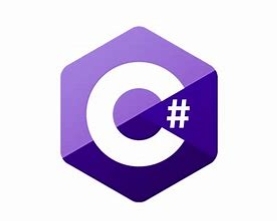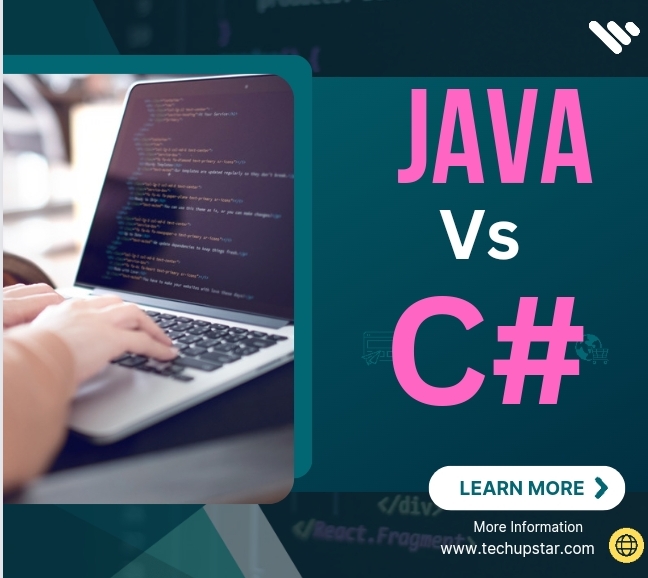No developer wants to be caught up in the Java vs C# buzz. This article will help you make an informed decision between using Java and C# for your next programming project? Both of these languages are widely used and have their own advantages and disadvantages. In the course of this article, we will be exploring the similarities and differences between Java and C#, discussing their ease of use, applications, debugging capabilities, and offering advice on which language is best for different use cases. So if you’re looking for a comprehensive comparison of Java vs C#, make this blog post a must read.
YOU CAN ALSO READ : THE USE OF BLAZOR VS JAVASCRIPT IN WEB DEVELOPMENT
Taking A Dip Into The Similarities And Differences Between Java and C#

Java and C# are both widely-used, object-oriented programming languages that share many similarities in syntax. Both utilize curly braces { } for code blocks, as well as the same keywords for looping (for, while) and control structures (if/else). However, there are several distinctions between the two which should be taken into account when choosing a language for a particular project.
In Terms Of Development Tools
One of these is development tools – Java offers more available resources than C# does; however many of them can be used interchangeably.
YOU CAN ALSO READ : THE ULTIMATE CHECKLIST FOR BLAZOR WEBASSEMBLY
In Terms Of Their Debugging Capabilities
Additionally, debugging capabilities also differ
slightly – Java typically provides more detailed error messages than C# does.
Application Type
Furthermore, depending on what kind of application or software you plan on developing with it will determine which language is most suitable; Java tends to be better suited for enterprise applications due to its scalability and reliability while C# is usually employed in desktop applications because of its strong type safety features.
Java Vs C#: Comparing the ease of use
Comparing the ease of use for Java and C# is an important factor when selecting between the two languages. Although they are both object-oriented programming languages, their syntax and capabilities vary, and this can have a major impact on development speed and productivity.
Syntax based comparison
When it comes to syntax, Java is known for its verbose nature while C# uses a more concise syntax. This makes it easier for developers to work with as it requires fewer lines of code to do the same things that would require more in Java. However, despite this difference in syntactical style, both languages are still object-oriented. This means that both utilize classes, data encapsulation, inheritance, polymorphism, and abstraction to organize code and facilitate better software engineering practices.
Development Tools
In terms of development tools available for each language, Java offers Eclipse IDE while C# has Visual Studio IDE. Both offer powerful debugging capabilities such as breakpoints allowing you to pause your program at any time during execution so you can inspect variables or check performance bottlenecks. They also offer built-in libraries which make development easier by providing pre-made methods or classes for common tasks without having to re-write them from scratch every time.
YOU CAN ALSO READ : JAVASCRIPT VS C++ GUIDE FOR DEVELOPERS
Applications of Java and C#

In the course of subsequent paragraphs, will discuss the various applications of Java and C#, exploring the strengths and weaknesses of each language when it comes to developing specific types of software.
Java is a popular choice for enterprise-level software because of its scalability and portability. It is also used for web applications, ranging from small websites to large web applications such as e-commerce sites. Additionally, Java is heavily used in mobile development due to its platform independence – it can be used to develop Android apps that are portable across devices.
YOU CAN ALSO READ: KOTLIN FOR LOOP GUIDE FOR KOLTIN DEVELOPERS
C# has a wide range of applications in web development, data processing, artificial intelligence (AI), and video game development. It is the primary language used by Microsoft’s.NET framework for Windows applications. Due to its popularity with developers, C# has been adopted by many game engines like Unity3D and Unreal Engine 4 for creating console games for Xbox One and PlayStation 4 and PC games on Steam.
Both languages are heavily used in the financial industry due to their scalability and robustness when it comes to developing trading algorithms or back-end processes that require high performance computing capabilities. Java is often preferred over C# here due to its larger library of tools that make it easier to develop complex systems without having to write code from scratch.
Ultimately, when making a decision between Java and C#, you should consider your project requirements as well as any existing knowledge base you may have with either language before making a final decision. If working on an Android app or enterprise-level application then Java would likely be your best choice; however if working on Windows applications or video game development then C# may be more appropriate given its integration into the.NET framework.
Java vs C#: Which language should you choose?

Selecting the best programming language for a project can be a tricky business. Java and C# are two of the most popular languages, and there is much to consider before deciding on one or the other. Syntax, development environment, cost, scalability and portability should all be taken into account when making a decision between Java and C#.
YOU CAN ALSO READ : THE FRUGAL GUIDE TO LOW CODE DEVELOPMENT (LCD).
When it comes to language features, both have similar syntax and powerful toolkits – but they differ when it comes to type-safety. Java is an object-oriented language while C# is type-safe; this affects which types of applications each language can be used for. Additionally, those who prefer Windows-based operating systems may decide that C# offers more options due to its compatibility with.NET framework.
The cost factor should also not be ignored when choosing between Java and C#: both provide open source solutions which can save on costs compared to commercial software packages.
Java vs C# Moreover, scalability and portability must also be considered in order to determine whether either language meets your application’s requirements – for example, Java is popular for enterprise-level applications due its scalability as well as being platform independent (i.e., running on any device).
YOU CAN ALSO READ : THE UNIVERSAL BENDING MAGIC OF REPLACE ALL WITH JAVASCRIPT.
On the other hand, C# offers greater performance than Java but is limited by its reliance on Windows operating systems for development purposes.
JAVA Vs C# which is more in demand
Each of these programming languages plays a crucial role in the field, but when we talk about which of them is more in demand it goes to JAVA.
Also, it depends on the type of industry and the type of software they are building.
With JAVA you can build Android development and other related stuff, you can also build games with JAVA.
C# is quite popular but not as JAVA C# is popularly used on the Microsoft ecosystem mostly for app development and window application.
Bear in mind that JAVA is more in demand than C#.
Is C# more powerful than JAVA?
The answer to the question is not straightforward, this is because C# is powerful in its field while JAVA is also powerful in its field.
Each of them works greatly in its part to determine the more powerful language can now depend on individual or preference.
Which pays more JAVA or C#
Both JAVA and C# pay, regarding the one that pays more, vary depending on the type of project you are hired for or the type of company that hired you for that project.
Also, each of them can pay hugely when you learn and master them perfectly.
If you want to learn them based on the one that pays more it will be better to carry out thorough research and dig deep into the type of company and industry that demand them mostly.
Conclusion
Java vs C# Finally, it’s important to consider the long term implications of using either language over the other – including maintenance costs further down the line – as well as how easy or difficult it will be to find skilled developers that are familiar with either language in case you need expand your team or replace staff members in future timescales.






